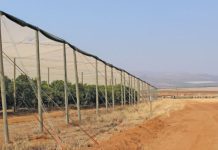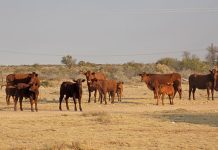Who’s making defective agricultural policies?
Policy makers work blind without thorough analyses to predict the outcome of their decisions. Without proper analyses and statistics, argues Prof Johann Kirsten, strategies can be misdirected by the interests or even the good intentions of politicians and interest groups. The state’s farmworker policy and the biofuel industrial strategy being just two cases in point.
Who makes agricultural policy in South Africa? This question is central to understanding specific policy decisions. Are they driven by the majority party and resolved at a policy conference, such as the one in Polokwane in December 2007? Are decisions taken in response to pressure from interest groups such as farmers’ unions?
Who has the most influence over decisions? The minister? Their advisors? The National Executive Committee of the ruling party, Cabinet, or the parliamentary portfolio committee on agriculture? Who’s really making policy and on whose behalf?
Given recent experiences with policy decisions and programme implementations, none of this is clear. Sound technical analyses are needed to verify whether a decision is truly going to benefit all the people – and shouldn’t a government “let the people govern”?
Who provides such analyses, for example, to the portfolio committee or the minister’s advisors, to help them debate key decisions?
Do they have a team of analysts working on the economic, growth and social consequences of any decision, or do they just rely on their gut feeling and their understanding of agriculture’s many realities?
Could it be they rely on a few select friends in the private sector?
What’s the Department of Agriculture’s role in preparing policy decisions? What happened to its analytical capacity to present analyses without likely biases from political or private sources?
These questions illustrate the uncertainty in agricultural policy making in South Africa. To create some certainty, we need agricultural policy analyses to help inform debate and sound decisions.
Drawing a roadmap
It’s here that agricultural economists’ strong foundation in economic principles and theory provide guidelines that help conceptualise and design policies.
Understanding economic relations in agriculture is central to articulate the best policy that will benefit the sector as a whole and ensure a better life for all. We need to know how farmers and consumers react to policies, and what their impact on poverty and income distribution will be. Policy shapes the incentives that drive these factors.
Understanding the fundamental economic relationships also lets one simulate the alternatives, which is fundamental to objective policy debate.This requires models and the ability to simulate the likely effects of policy proposals, but as very few people in South Africa can use these modelling tools, we can’t anticipate the potential impact of a policy intervention on farms or consumers. The objectives of agricultural policy analysis are therefore to:
- help the policy debate by outlining economic and social implications,
- play a dynamic role in policy making,
- to inform, enlighten and to guide.
- The question is: do we allow these processes to take place?
Farmworker policy gone wrong
Government’s policy approach to farmworkers had the very sound objective of improving their living conditions, but its implementation through strong legislative measures had the opposite effect. In practice, it increased the cost of labour to farmers just as they were coping with deregulation, resulting in large-scale retrenchments, as farmers tried to survive financially, and destroying agriculture’s labour absorption capacity overnight.
Improving conditions on farms and empowering farmworkers is critical, but different policy incentives would have had less social fallout.
The dilemma is always how to structure policy and legislation to achieve that balance – in this, analyses and understanding the reality and context are critical.
Polokwane: analysis needed
The importance of policy analyses is also illustrated by the resolutions taken in Polokwane and by government’s biofuel industrial strategy.
The former illustrate the importance of viewing agricultural policy in a historical context. They begin by stating: “While deregulation, liberalisation, and the resulting competitive pressures on the sector have eliminated many of the privileges of the large-scale farming sector, various aspects of policy and legislation still reinforce the legacy of the past.”
In this context the conference resolves to: “review and change all institutional, legislative, regulatory and tax-related policies that create a bias in favour of large-scale, capital-intensive, environmentally damaging agriculture and under-utilisation of land and which constrain the emergence of a vibrant, pro-poor rural economy.”
This is all well-articulated and politically correct, but what it ignores is that the ruling party has already removed all the legislation and policies that created these so-called biases between 1994 and 2000.
A recent study by Edwards, Kirsten and Vink (2007) clearly illustrates the impact of agricultural policy reform and shows that some sectors are now being taxed by government policy. This disconnection between government and policy decisions and various sectors of the economy is quite striking – something many commentators observed in the Polokwane aftermath. It’s almost as if the ruling party is in opposition to its own government. There has been so much focus on removing biases in favour of commercial agriculture that government has lost many of the potential measures to support black commercial farmers. The policy environment is now actually creating large disincentives in agriculture and rapidly diminishing the success of any emerging agriculture. It actually threatens South Africa’s potential for food production.
Biofuel falls flat
In the launch of the biofuel strategy at the end of 2007, policy analyses were ignored and big business controlled the agenda. The biofuel strategy states upfront that one of its objectives is to support agricultural development and growth. Creating increased demand for agricultural-based commodities, like biofuel, would have been one way to achieve that.
All the analyses indicated this would only happen with a mandatory blending requirement, a tax rebate for biofuel and restrictions on biofuel imports. However, the strategy recommended no mandatory blending and no import controls or tariffs on imported biofuel. Our latest analysis (see www.bfap.co.za) shows this will result in a small local demand for a biofuel industry, and most likely will have no impact on agricultural growth, but means a large growth in biofuel imports. This isn’t good for our balance of payments.
Again the question is, who drove the decision? What was the political play involved here and why weren’t clear economic analyses considered? The biofuel strategy would have had clear cost implications for the major fuel companies, and they most likely made strong, well-articulated arguments to help swing its stipulations in their favour.
Thus policy analysts, whether in government or in civil society, are frustrated by politics and resulting decisions that are not necessarily in the interest of the future of agriculture, or the country as a whole. Next week: An agricultural policy agenda for a newly elected government.
E-mail Prof Johann Kirsten
at [email protected]
or call (012) 420 3248. |fw








